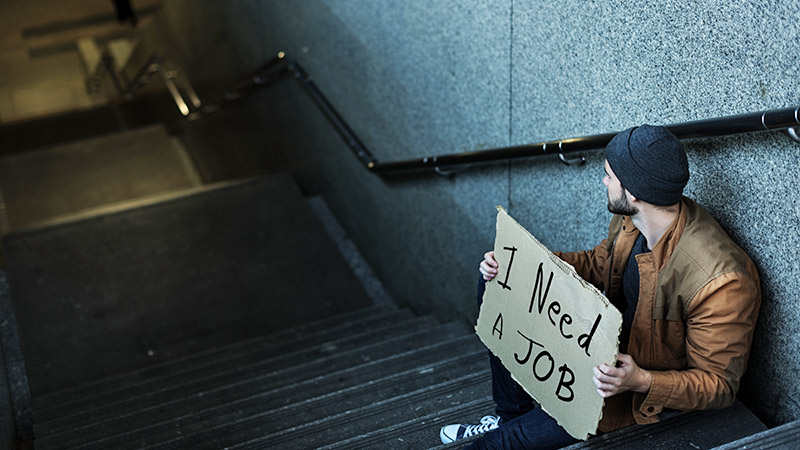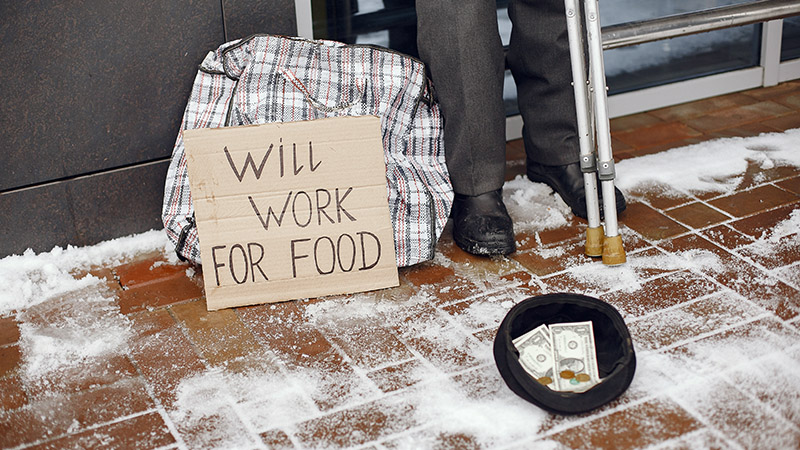The city of Chicago in Illinois has had a history wrought with challenges. These challenges have highlighted the issues of homelessness. Even today, Chicago struggles with homelessness in the city.
Unity Parenting and Counseling works to alleviate the issues that homeless youth face while living in Chicago. First, we’ll take a look at the history of homelessness in Chicago. Then, we’ll evaluate the current state of homelessness in Chicago and Illinois as a whole. Finally, we will discuss the main causes of homelessness in Chicago and how Unity Parenting and Counseling address those issues.
A Brief History of Homelessness in Chicago
Chicago is the third-largest city in the United States with a population of almost 2.7 million people. Because of its large size and difficult history, Chicago has always struggled with homelessness.
In the 1800s, certain catastrophic events led to people struggling to find housing in Chicago. In 1871, residents of Chicago experienced the Great Chicago Fire. The fire raged for 36 hours. At the time, 300,000 people lived in the city. Due to the intense blaze, one-third of them lost their homes and 300 people lost their lives. With help from charities around the world, residents of Chicago rebuilt the city, expanding it within a year. The Great Fire remains a turning point in Chicago’s history.
Even though Chicago residents brought the city back from destruction, they faced another disaster in 1893 when depression ravaged their city. The Panic of 1893 caused stock prices to plummet. Banks closed and businesses failed. The rates of unemployment continued to rise and soup kitchens opened to help feed the impoverished. People struggled to afford their homes. They faced homelessness and starvation. Fortunately, the depression ended in 1897.
At this time, however, Chicago began to experience large numbers of chronically homeless individuals. In the late 19th century, Chicago experienced massive industrial growth and became the nation’s railroad hub. Thousands of native-born, itinerant workers flocked to Chicago on the railroads in search of jobs. This large influx of people struggled to find low-cost shelter, so the majority of them lived in temporary housing or on the streets.
By the 1950s, Chicago’s need for itinerant workers decreased and the city experienced postwar prosperity. Therefore, the number of homeless people diminished substantially. In the 1980s, however, the number of homeless people increased again for several reasons: a recession occurred in 1981, technological advancements displaced low-skill workers, and gentrification eliminated much of the low-income housing as more affluent residents moved into the area.
Today, the city of Chicago continues to struggle with the issue of homelessness.
Current State of Homelessness in Chicago, Illinois

As of 2021, the city of Chicago’s Homeless Point-in-Time Count and Survey Report estimates that 4,447 people experienced homelessness. Approximately 3,023 individuals who were experiencing homelessness resided in shelters while an estimated 702 to 1,454 people were living on the streets.
As a state, Illinois has a total homeless population of 10,199 in 2021. The homeless population is broken down into smaller identifiable groups.
- There are 1,105 homeless households.
- There are 690 homeless veterans.
- There are 609 homeless young adults.
To reduce homelessness in Chicago, Unity Parenting and Counseling works with at-risk young people and struggling families. Through our various programs and services, we provide them with the stability and support structure they need to live more meaningful lives.
Unity Parenting and Counseling focuses on protecting and supporting the most vulnerable groups within the community—those who are homeless or in unstable housing situations, abused and neglected children in foster care, and their parents, including those with physical and mental health challenges.
We are a social service agency invested in promoting the development of healthier and stronger family units, which also results in cultivating more positive communities.
What Are the Main Causes of Homelessness in Chicago?

Unity Parenting and Counseling understands that homelessness is a huge problem in Illinois. To best help youth and families who are struggling with homelessness, it is important to recognize what causes homelessness in the first place.
The top four main causes of homelessness are lack of affordable housing, unemployment, poverty, and low wages.
Lack of Affordable Housing
Currently, there is a lack of housing available for people with low incomes. Without housing options, people face eviction, instability, and homelessness.
Owning a home is a part of the American Dream, but as housing costs increase and incomes remain stagnant, affordable housing remains out of reach for many residents of Illinois.
The nation is experiencing one of the worst affordable housing crises in history. People who are living in poverty continue to be affected. Some low-income households pay at least half their income toward housing. This puts them at risk of housing instability and homelessness.
Unemployment
The unemployment rate is the main indicator of the state of the economy. In addition to measuring the strength of the economy, the unemployment rate also measures the overall well-being of U.S. citizens.
Long-term unemployment causes financial, emotional, and psychological ruin because people cannot provide for themselves and their families, pay their bills, and contribute to society.
Currently, in Illinois, 2.60% of the population is unemployed.
Poverty
Poverty is defined as lacking income to meet basic needs. People who live in poverty struggle to afford a place to live, food to eat, and necessities like clothes, shoes, and personal hygiene items.
Causes of poverty include unemployment, not owning property, limited education, inherited poverty, and the systematic exclusion of racial and ethnic minorities from accessing education and participating in fair economic enterprise.
Poverty is a significant problem across the country. In Illinois, 12.39% of the residents currently live in poverty.
Low Wages
Oftentimes, low-income households do not earn enough money to pay for food, clothing, transportation, and secure housing. For people to afford basic necessities and get out of poverty, they need a living wage.
A living wage is the amount of income determined to provide a decent standard of living. A living wage should pay for the cost of living in any location. It should also be adjusted for inflation. The goal of a living wage is to sure that all full-time workers are compensated enough to live above the federal poverty level.
According to the Massachusetts Institute of Technology’s Living Wage Calculator, in Cook County, Illinois, the county in which Chicago is located, the living wage for one adult without children is $16.32. The current minimum in Chicago is $13.00 an hour. For families with children, the living wage increases according to the number of children they have. Unfortunately, the minimum wage remains the same.
Additional causes of homelessness include health issues, escaping violence, and the impact of racial disparities.
Health
Health and homelessness are linked. Health problems can cause homelessness and homelessness can cause health problems. Affordable housing is key to addressing the health needs of those experiencing homelessness.
Domestic Violence
Domestic violence experiences are common among youth, single adults, and families who become homeless. Many survivors of domestic violence become homeless when leaving an abusive relationship.
For those in need of temporary shelter, Unity Parenting and Counseling provides Ujima Village. Ujima Village offers overnight shelter for homeless youth, ages 18-24, and is located on the border of Greater Grand Crossing and Englewood.
Racial Inequality
Minority groups experience homelessness at a higher rate than Whites. Therefore, minority groups make up a disproportionate share of the homeless population. Racial inequality results from long-standing historical and structural racism.
Make a Difference With Unity Parenting and Counseling
Help Unity Parenting and Counseling make a difference in the lives of homeless youth. Support our programs and services by donating today. Unity Parenting and Counseling accepts monetary donations via PayPal and checks. We also have a wish list of items that we need for the hundreds of children, youth, and adults that we serve. Your donations are greatly appreciated.
